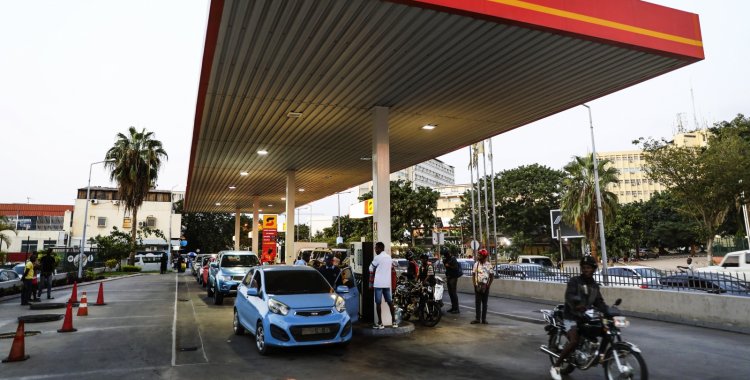"I came here to fill up this car, I've been there for over an hour, I don't know what the trouble is there ahead, there's no way to explain it", Domingos João told Lusa.
This driver of a hospital car admitted that the flooding at the Sonangol fuel pumps, a well-known gas station on Rádio Nacional de Angola, was a reflection of the rise in the price of gasoline.
"I believe so, I think everyone is now worried about filling up the deposits so that tomorrow they can have the reserve, that must be it", he pointed out.
The scenario was discovered by Lusa at the end of Thursday afternoon on Avenida Comandante Gika, Alvalade neighborhood, in the center of the capital, where the parade of vehicles, with motorists eager to fill up their tanks, meandered along a large part of the asphalt.
The presence of vehicles in this perimeter conditions traffic circulation in both lanes, and there were even drivers who had been there for over an hour in the expectation of obtaining a fuel reserve to face the following days.
The Government announced the gradual withdrawal of gasoline subsidies, which will increase from the current 160 kwanzas to 300 kwanzas/litre, maintaining the subsidy to the agricultural sector and fishing.
According to the Minister of State for Economic Coordination, Manuel Nunes Júnior, taxi drivers and motorcycle taxi drivers will be subsidized, continuing to pay 160 kwanzas per liter of gasoline, with the State covering the difference.
The measure came into force at 01:00 this Friday.
Questioned about the advantages or disadvantages of the announced measure, Domingos João said it was a difficult assessment, contesting, however, the decision of the authorities, for "not being very much in agreement".
"Yes, it's worrying, because I'm also going to use taxis and I don't know how it's going to be", he shot.
The driver António Marcelino is also worried about the authorities' decision, believing that the decision should contribute to the rise of the main products in the basic basket.
Aboard a top-of-the-range vehicle, Marcelino said that he spends 25,000 kwanzas and that from now on he will have to double his expenses, a situation that will force him to redo calculations to decide between putting food at home or filling up the car tank.
"It has disadvantages (the measure), I hope that the Government gives a little more time to balance things more or less and then raise the fuel, because there is also a salary that is not coming, there is fuel, food", pointed.
The driver also regretted the long waiting time in the long queue towards the gas station, where he had been waiting for almost an hour, having also predicted speculation on the price of the taxi ride (currently set at 150 kwanzas) to 200 kwanzas.
"Because, maybe now they will charge 200 kwanzas for the race and it will complicate many things, because here in our country when fuels go up, the tendency of things is also to go up and the one who suffers here is always the citizen", he concluded.
Manuel Nunes Júnior also said that the subsidy for oil derivatives has created major problems not only for Sonangol, the state-owned oil company, but also for public finances.
In 2022, the subsidy for fuel prices amounted to around 1.98 billion kwanzas, corresponding to 3.8 billion dollars at the current exchange rate.
The Government will liberalize fuel prices, in a phased manner, until 2025, starting with the partial removal of gasoline subsidies, the price of which will be "free and floating" as early as next year, the authorities announced.







